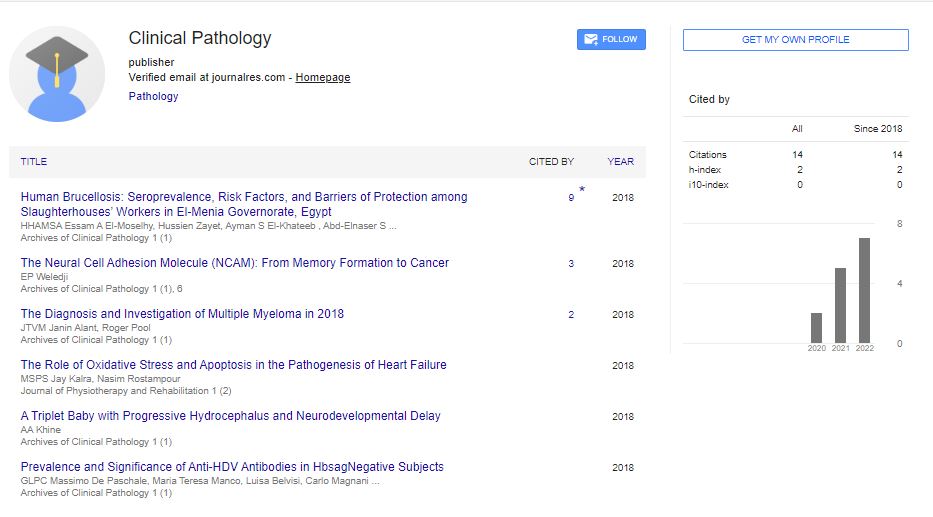Adoption of digital pathology in developing countries- from benefits to challenges
Talat Zehra
Jinnah Sindh Medical University, Pakistan
: Arch Clin Pathol
Abstract
Developing part of the world contain more than two third of world population. Likewise contain more than 50% of tumour cases and bulk of endemic diseases but less equipped with diagnostic modalities particularly the novel ones. The story does not end here. There is shortage of pathologist in general around the globe and in particular in developing part of the world which leads to delayed diagnosis resulting increase in morbidity and mortality of precious lives which could be safe easily if would have diagnose timely. Adoption of digital techniques can be helpful in many ways to reduce the sufferings of people. COVID-19 pandemic has further highlighted the importance of digital pathology as it offers the pathologists to work from their place of comfort, bridges the gap of physical barriers and also save time and money. In addition to the many advantages, there are certain limitations and challenges, which have to be overcome particularly in the developing world. The major issue is the cost of scanners and technical support and training of staff. However, despite all these problems and challenges that exist, these can be resolved with the passage of time, where the role of world leader organisations will be of great importance in resolving these challenges.
Biography
Talat Zehra is a consultant Histopathologist in Pakistan. Since 2016, Dr. Zehra also worked as a lecturer at Jinnah Sindh Medical University, Karachi. Her field of interest is digital pathology and its implementation in Pakistan.
 Spanish
Spanish  Chinese
Chinese  Russian
Russian  German
German  French
French  Japanese
Japanese  Portuguese
Portuguese  Hindi
Hindi 